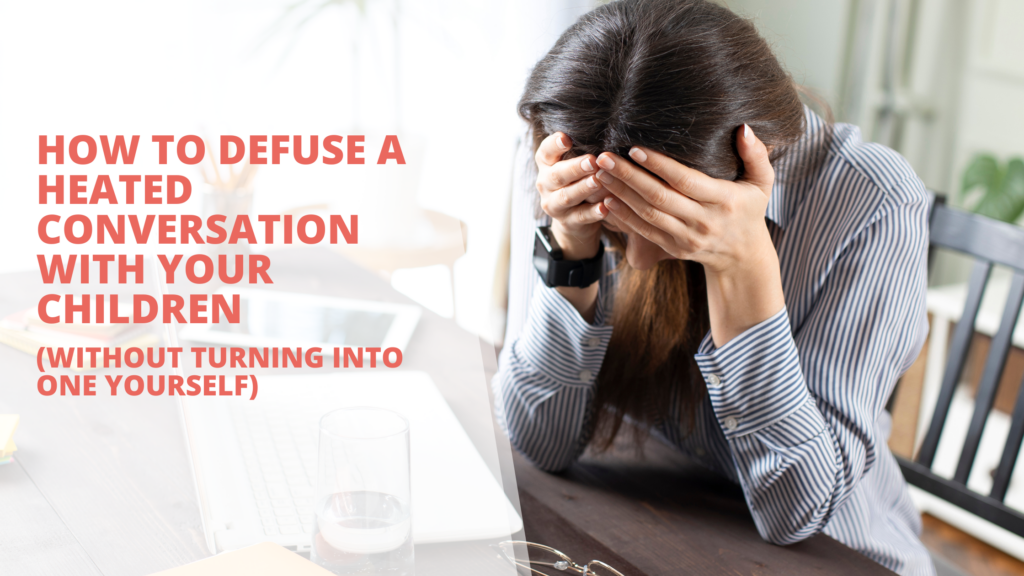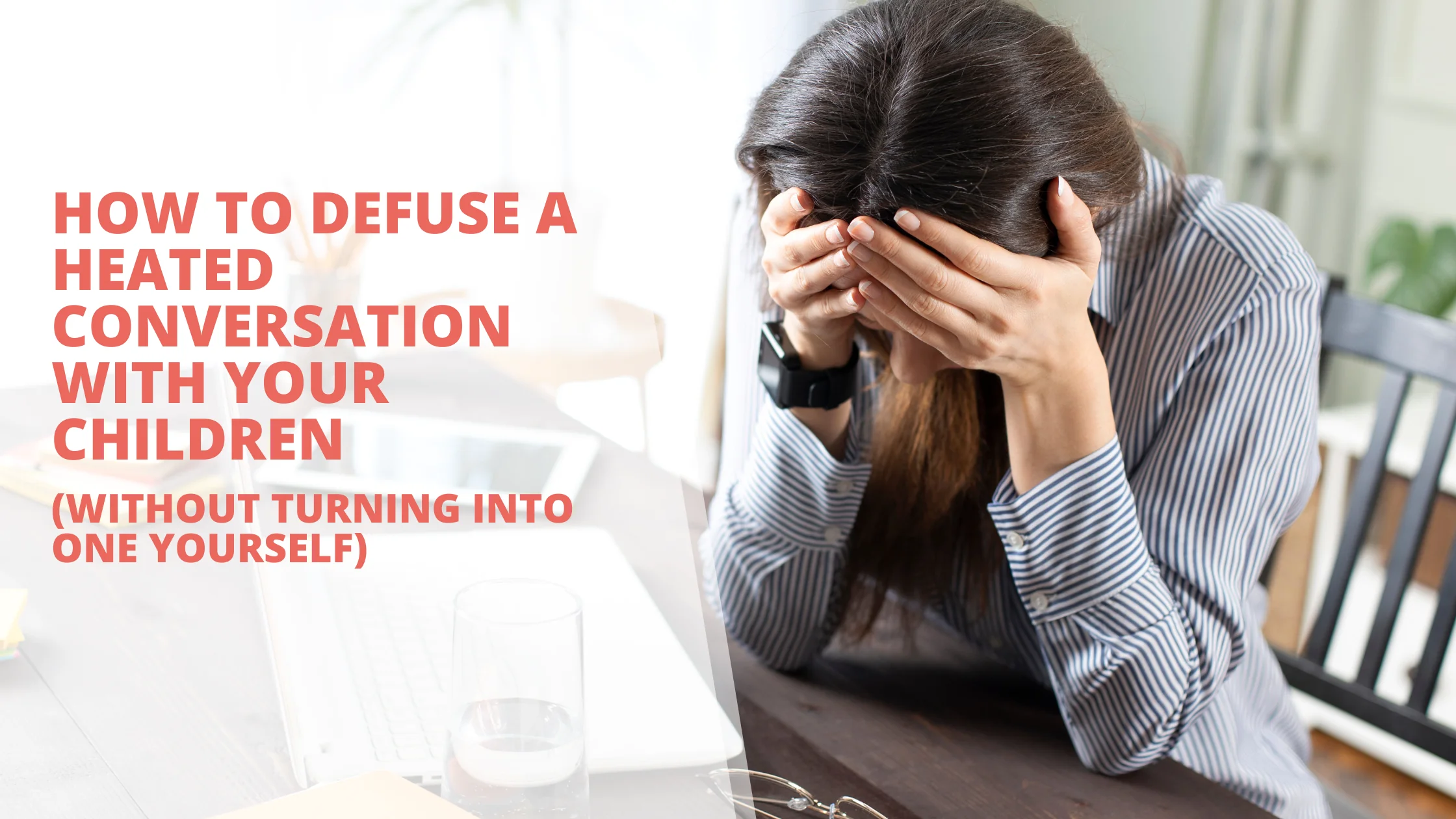
You’re sitting at the dinner table, feeling good that everyone’s finally in one place. You take a breath, and as a gentle warm-up ask:
“How was everyone’s day?”
Cue the fireworks. One of your kids snaps back with a tirade of frustration, slamming their fork, mumbling something about school being the worst, and eye-rolling their way through a monologue of hormonal rage.
You look across the table and think: What just happened? You were aiming for a bonding moment and somehow walked into an emotional warzone.
The Moment of Choice
Right here, you have two choices:
- Engage.
Correct the tone. Challenge the disrespect. Match their volume. Demand better manners. - Empathise.
Pause. Take a breath. Let the storm pass. Say something like:
“That sounds like a tough day. We don’t have to talk about it now, but when you’re ready, I’m here.”
Guess which one defuses the situation?
(Clue: it’s the one that doesn’t turn dinner into a battleground over mashed potatoes.)
“You don’t need to solve it right away. Just remind them you’re on their side.”
What’s Really Going On in Their Brain?
It’s easy to take their tone personally especially when you’re exhausted, triggered, or just trying to connect. But understanding what’s happening developmentally can help shift our lens:
🌱 Younger Children (5–10)
They might lash out not because they want to be rude, but because they don’t yet have the emotional vocabulary or regulation skills to say, “I’m overwhelmed, please back off.”
Their brains are still under construction particularly in the areas that help with impulse control. When they blow up, they often feel it just as intensely as we do. They’re not trying to hurt us. They’re struggling to handle their big feelings.
🔄 Tweens & Teens (11–18)
Oh, the stand-offs. This age group is famous for them. But what looks like defiance is often a mixture of stress, social pressure, identity exploration, and yes brain rewiring.
The adolescent brain is doing a full renovation, with the prefrontal cortex (the part that helps with reasoning, empathy, and decision-making) under major development. So you’ll often get big emotion before logic has had a chance to clock in for the day.
Add to that a rough day at school, friendship dramas, or the pressure to perform, and suddenly your simple dinner check-in can feel like a personal attack to them even when it’s not.
| AGE | WHAT’S GOING ON | HELPFUL RESPONSE |
|---|---|---|
| 5–10 | Struggling to express big emotions; limited self-regulation | Stay calm, name the feeling for them |
| 11–13 (tween) | Mood swings, seeking independence, peer stress | Empathise, don’t match their intensity |
| 14–18 (teen) | Emotional highs, brain rewiring, identity development | Give space, follow up when calm |
What’s Really Going On in Us?
Here’s the kicker sometimes our own reactions are more about our own stuff than our child’s outburst.
That rising heat in your chest? The urge to shut it down fast? That could be linked to:
- Our own unresolved childhood experiences.
- A stressful day at work.
- Feeling like we’re failing as a parent.
- An inherited belief that “respect” looks like quiet compliance.
If you were raised in a household where expressing anger was punished or where “talking back” meant trouble, your child’s outburst might feel incredibly triggering.
But here’s what’s powerful: noticing that response, naming it (even just to yourself), and choosing not to pass it on.
“sometimes our own reactions are more about our own stuff than our child’s outburst”
Diffusing, Not Dominating
So, when faced with a child in meltdown mode, try this instead:
- Pause before you speak.
That beat of silence is where empathy lives. - Get curious.
Ask yourself: “What might be going on underneath this behaviour?” - Stay connected.
You don’t need to solve it right away. Just remind them you’re on their side, even when they’re prickly. - Use humour where you can.
Sometimes a well-timed “Should I bring in a helmet or just wait this one out?” can shift the energy. - Come back to it.
Later that night, after the storm has passed, you might say,
“Hey, earlier felt pretty rough. Want to talk about it now?”
A Final Word (Or Two)
None of this means being a pushover. Boundaries still matter. Respect matters. But when we respond with empathy first, we create space for reflection not just reaction.
And in that space, our children learn that all feelings are welcome, but not all behaviours are okay. That’s where growth happens for them and for us.
So next time you’re met with fire at the family table, take a breath. Remember: it might not be about you. And even if it is, you’re still the adult in the room even when it feels like the kids are running the emotional show.
You’ve got this. Even when the peas are flying.
Been there, done that, got the spaghetti stain on the shirt?
Share your funniest or hardest family dinner story in the comments. Let’s learn (and laugh) together.

